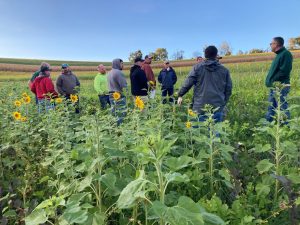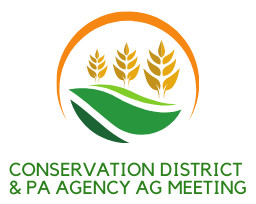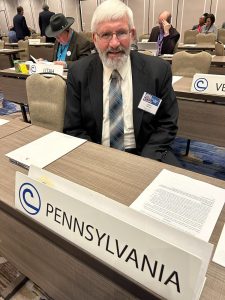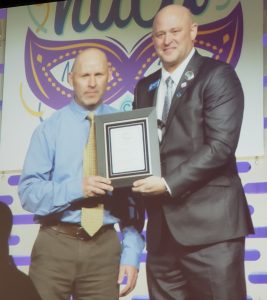
Washington County Conservation District’s cover crop field day on September 27, 2022. Photo provided by WCCD.
On September 27, 2022, Washington County Conservation District (WCCD) hosted an evening crop walk at the Carter Family Farm. Various cover crop strips were planted in August to serve as a demonstration plot for the event. In addition, a soil pit was dug so participants could see how cover crops improve infiltration and break up compaction. The farmer demonstrated how a cover crop roller works and discussed planting green.
WCCD also held two pasture walks and an agricultural winter meeting as part of the grant.
 Financial and other support for this project is provided by the Pennsylvania Association of Conservation Districts, Inc. through a grant from the Pennsylvania Department of Environmental Protection under Section 319 of the Clean Water Act, administered by the U.S. Environmental Protection Agency.
Financial and other support for this project is provided by the Pennsylvania Association of Conservation Districts, Inc. through a grant from the Pennsylvania Department of Environmental Protection under Section 319 of the Clean Water Act, administered by the U.S. Environmental Protection Agency.














